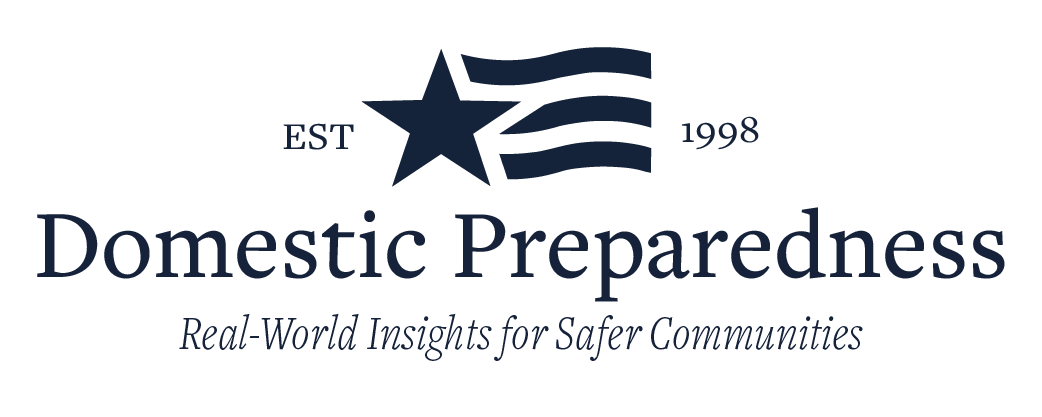This month marks the third anniversary of Public Law 110-53, which was signed into law on 3 August 2007. In response to the 9/11 Commission’s recommendations, one provision of the law – Title IX – calls on all private-sector businesses to develop a preparedness plan and voluntarily submit to a certification process. However, awareness of that provision has been spotty, even among the insurance industry – a sector singled out to play an active role in the law’s promotion.
After disbanding the original 9/11 Commission on 21 April 2004, ten members of the commission announced the formation of the so-called 9/11 Public Discourse Project. The new group’s goal was to complete the 9/11 Commission’s original mandate – i.e., finding ways to guard the United States against future terrorist attacks. On 5 December 2005, the new group issued its Final Report, which included a “score card” on the initial actions taken by the government (many “Ds” and “Fs” were among the assigned grades) and contained numerous additional recommendations. Among the latter, specific attention was given to the promotion of private-sector preparedness. The final report also called on insurance and credit rating companies to look “closely” at a company’s compliance with the ANSI (American National Standards Institute) standard “in assessing … [the company’s] insurability and creditworthiness.”
Over the past three years, some progress has been made, but full implementation of the program, now known as “PS-Prep” (Private Sector Preparedness), has not yet been achieved. The Department of Homeland Security (DHS) has much of the required infrastructure in place, however, and has held a series of public meetings to solicit feedback. Nonetheless, public support among the business community remains tepid. In fact, a recent Gartner Group forecast on PS-Prep predicts that, by 2012, “less than 10 percent of end-user enterprises will have obtained external certification for their BCM [business continuity management] and IT [information technology] disaster recovery programs.”
ANSI, ANAB, and IBHS: Incremental Progress
The ANSI National Accreditation Board (ANAB), which was awarded the DHS contract to oversee the certification process, has announced, though, that it will begin accepting applications for the PS-Prep program by 1 September 2010. Scott Richter, the ANAB’S director of Planning and Development, said that he has spoken “to six to eight certification bodies interested in the PS-Prep program” and expects that twelve to fifteen organizations eventually will apply “to certify companies to the PS-Prep standards.” After this phase of the program is in place, marketing by certification firms can begin and public awareness may well increase.
One group that responded to the DHS call for comments is the Institute for Business & Home Safety (IBHS), a nonprofit organization headquartered in Tampa, Florida, and funded by hundreds of insurance and reinsurer companies. Debra Ballen, IBHS general counsel and senior vice president of public policy, has met with DHS on more than one occasion to discuss PS-Prep.
IBHS has expressed support for the program, and Ballen has urged DHS itself to “do more to advance an understanding that preparedness is not just about terrorism. Businesses need to pay attention to the areas that are responsible for most losses during times of natural hazards such as building construction and equipment. While concern over terrorism is well founded, companies need to develop a culture of preparedness that takes an all-hazard view if they are to achieve resiliency.”
When asked about the current visibility of the PS-Prep program, Ballen answered that there is “a much greater awareness of the program among large companies” – but more work “needs to be done,” she continued, “to educate people in the small and mid-size markets.”
A similar opinion was expressed by Charles Sidoti, vice president of risk control at OneBeacon Insurance of Canton, Massachusetts. “The cost of insurance reflects the everyday risks companies face,” he said. “Insurance companies welcome any initiative that encourages better preparedness, but the program has to reflect the realities of business and should include guidance on how to prioritize and cope with risks ranging from pandemics to accidental fires.”
Congressional Encouragement, But New Obstacles Loom
One provision of the charter given to DHS by Congress calls for development of a business case that encourages participation in the PS-Prep certification process. Initially, some outside the insurance industry called for premium discounts for organizations that earned a certification. That argument was quickly dispelled once they understood that insurance premiums are usually based on analysis of historical claims.
“We don’t have enough information to make a decision on whether or not having a preparedness plan leads to fewer claims,” Sidoti pointed out. “Besides, there is no set price for insurance. Every business and every building is unique in some way, and decisions are made on a case-by-case basis. If your business has a plan, make that known to the underwriter and factor it into your price negotiations, but there can’t be a set discount because there is no set price.”
Two markets highlighted in the PS-Prep legislation but not yet addressed by a DHS plan are: (a) smaller businesses; and (b) the industry sectors designated as Critical Infrastructure and Key Resources (CIKR). The 18 CIKR business sectors, which range from financial institutions and nuclear power plants to national monuments and electrical grids, pose a special challenge to the PS-Prep program. DHS has announced, though, that it is working on a way to blend the preparedness requirements mandated by the existing regulatory environment with the standards being used by PS-Prep.
Small businesses pose a challenge of another sort. Given the extreme price sensitivity of most small business, few of these companies are expected to voluntarily spend resources on certification without a tangible return. “Making the case to small business is a real challenge,” said Ballen. IBHS offers a free tool – i.e., Open-for-Business® – that allows small and medium companies to quickly put together a preparedness plan, but only a relatively small fraction of American firms are using it.
“Our industry is supportive of any initiative that educates the public and gets them better prepared. But we also realize that PS-Prep is really the beginning of the process of preparedness, not an end,” said Ballen.

Donald Byrne
Donald Byrne is the Managing Director of North River Solutions and has been involved with the PS-Prep program from its inception. A certified Lead Auditor, CBCP, and data center expert, he teaches graduate courses at Boston University and writes for the news website www.continuitycompliance.org. He can be found at Linked In and followed on Twitter@Don_Byrne.
-
This author does not have any more posts.






